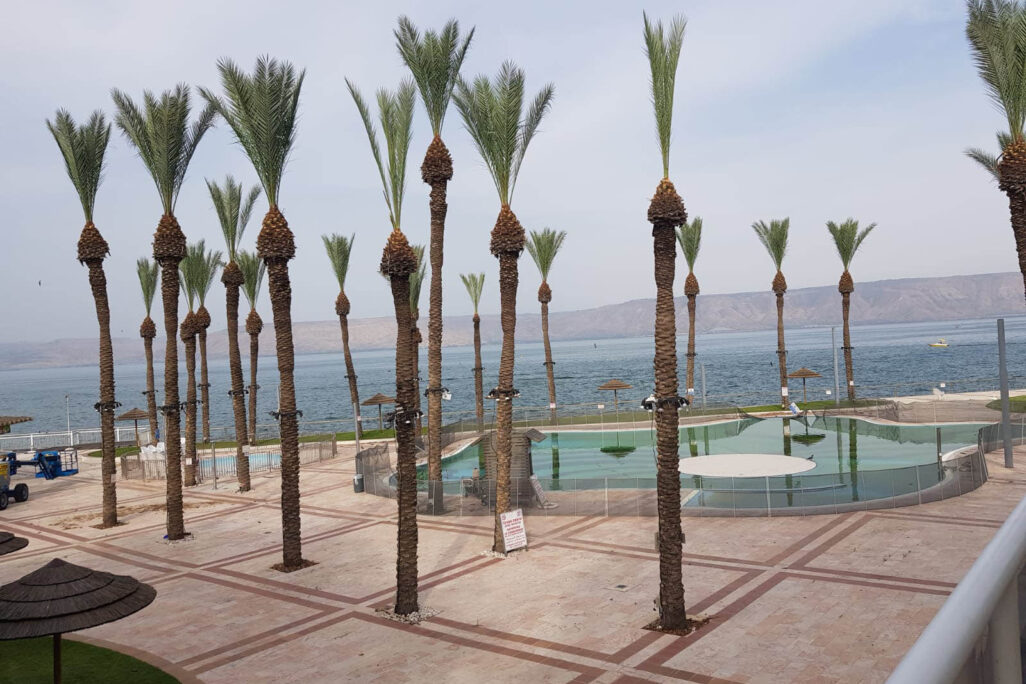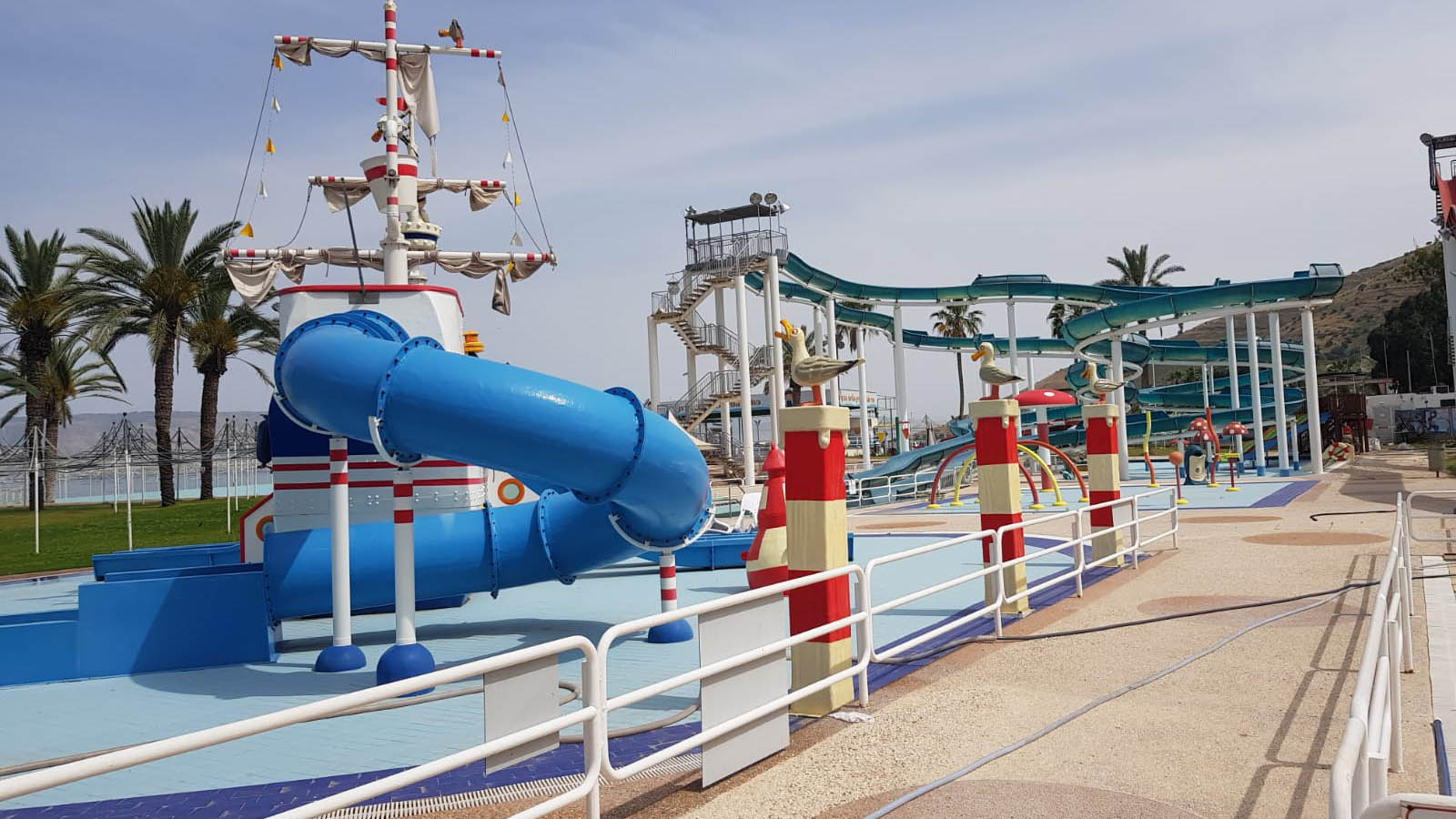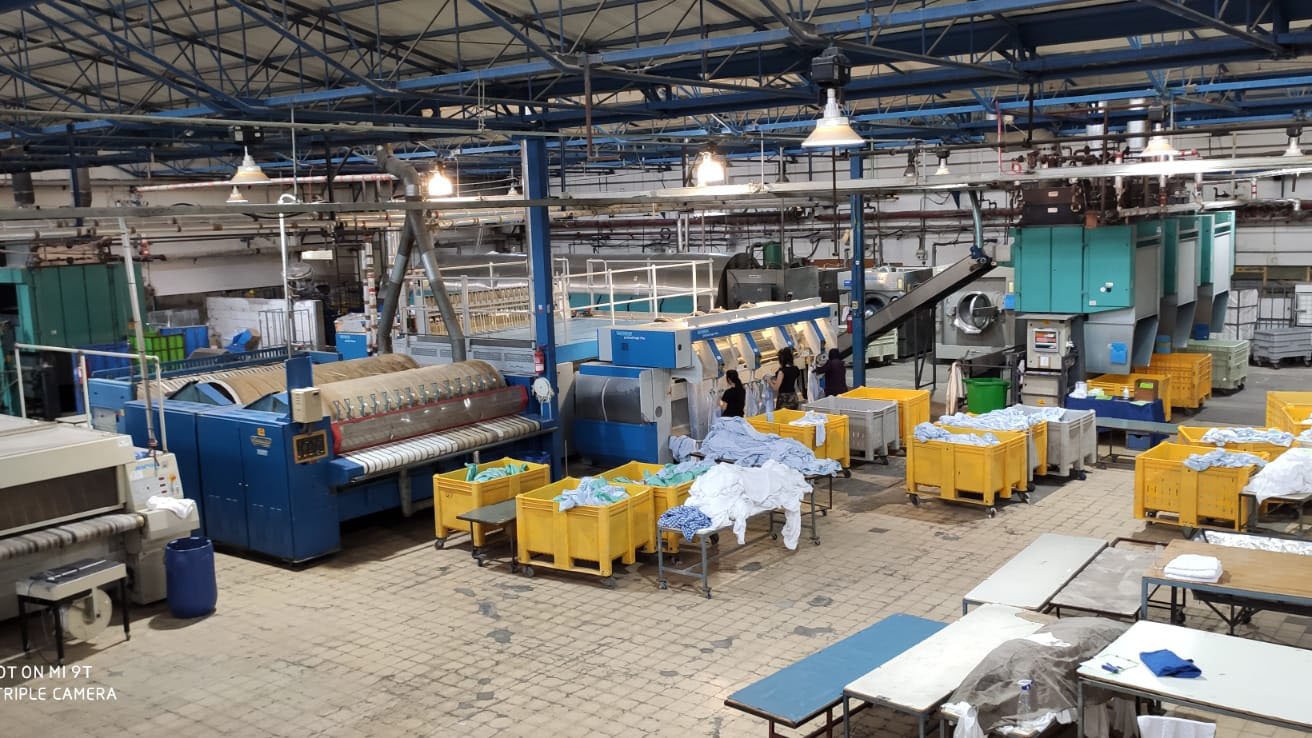
4,300 hotel rooms stand empty in Tiberias. Each year, 900,000 hotel bookings are made by overseas tourists visiting the city. In recent years this figure has been on the rise. This year, if they reach half a million stays, it will be a miracle. The great hope of the city, which is the fourth largest tourism center in Israel, is that domestic tourism – which ordinarily is responsible for another 900,000 hotel bookings – might be able to recover in time for the coming summer.
A Hotel Without Guests
“It’s really sad. I walk around the hotel and tell myself that this cannot be. It has never been like this. I suddenly realized that a hotel with no guests is really sad,” says Ruti Oren-Rachman, CEO of Tiberias's Gai Beach Hotel, in conversation with Davar.
According to the Ministry of Tourism’s numbers, around 140,000 people work in tourism in Israel. They are joined by tens of thousands of additional service providers and suppliers whose livelihoods depend on the tourism industry, which dried up in an instant. Except for a small number of hotels which are operating as quarantine centers, hotel occupancies across Israel in recent months have been close to zero. In the industry, everybody knows that even if the Health Ministry were to lift all of the restrictions tomorrow morning, their livelihoods would only return when airplanes packed full of tourists start landing in Israel again, and when Israelis themselves get back in vacation mode.

“This pandemic will haunt us forever. We just finished renovating the hotel,” says Oren Rachman. “2019 was an excellent year, and 2020 was meant to be our biggest year ever, both for overseas and domestic tourism. Even the Kinneret got on board, it’s full to the top and beautiful, but the hotel is empty.”
Oren-Rachman hires around 200 employees at the Gai Beach Hotel. Everyone, save for the security staff, the small maintenance team, and senior management have been furloughed.
Now, I can’t really see how we’re going to reopen. Overseas tourism is definitely out of the question for the near future.”
“There has never been a situation like Corona. I can’t compare it to anything. There’s never been anything like it. Even if there was a year where tourism dropped suddenly because of the security situation, then within three months the numbers would pick up again. Now, I can’t really see how we’re going to reopen. Overseas tourism is definitely out of the question for the near future.”

Will all the workers return?
“I think not. Definitely not anytime soon. We won’t go back to occupancy numbers that justify that kind of staffing. They’re good people, reliable and skilled. It’s tough having skilled workers and not bringing everyone back. It’s a hard blow for them and for us. Everybody has families. Even being furloughed, which is better than nothing, doesn’t bring in enough money to live off.”
Tourism is an irreplaceable source of income
As a city of tourism, Tiberias has seen highs and lows over the years. In the eighties, Tiberias was a must-see destination, but at some point, it got left behind. Despite its attractiveness for pilgrims and vacationers alike, the lack of strategic planning coupled with minimal significant investment, the tourism center of the city has become neglected. The changes which have occurred in the last few years have been felt by all who pass through its gates.
I know the situation won’t go back to what it was the night before the crisis, and that there will be a reduction in activity and work hours, but we’ll fight so that all the workers return.”
Tiberias is situated in the fourth socioeconomic bracket. In other words, half of the city’s workers earn minimum wage. The hotel industry is an irreplaceable source of income for hundreds of the city’s residents. Despite the low wages in the industry, many prefer working with air-conditioning to working in the heat of low-tech food factories nearby.

Regional head of the Histadrut, Avi Gabai, explains the situation form his standpoint: “There’s no need to complicate things, the numbers speak for themselves. Before March 15, employment services had 2,000 people claiming unemployment benefits, and now that figure has risen to 8,000.”
“I know the situation won’t go back to what it was the night before the crisis, and that there will be a reduction in activity and work hours, but we’ll fight so that all the workers return,” says Avshalom David, head of the workers committee at Caesar Hotel in Tiberias. “We have the help of regional Histadrut head, Avi Gabai, and Eti Wiesel, head of the Hotel Workers’ Union. They helped us greatly through being furloughed. You know, people don’t understand their rights and the conditions of furlough. So, they opened a WhatsApp group with admins from Bituach Leumi and employment services to assist the workers through the process.”
Do you manage to stay in contact with the other workers?
“I’m in contact with everyone. They speak of the difficulties of being at home and not at work. These are people who are used to working even on Shabbat and festivals and suddenly they’re without work. Wages have taken a real blow. Bituach Leumi pays on average 40 percent less. But we’re optimistic, keeping our hopes up.”
Collateral Damage
A hotel is a complex operation tied to dozens of other businesses which provide a range of services. Buses, tour guides, food purveyors, laundry. Lots of laundry. Eli Cohen is the owner of one such laundry, Masad Laundry, whose clientele is 80 percent hotels. If it were up to him, he would have shut down the laundry for the duration of the COVID-19 crisis. But he also provides laundering services to local hospitals, and so his business is classified as essential and must remain open. “My laundry has a capacity of 15 tonnes per day. Hospitals require 2-2.5 tonnes on a normal day. Since the coronavirus, they have dropped to 1,800 kilograms per day. It doesn’t justify running the system.”

The operation which Cohen manages has adjusted for pandemic circumstances. “The dirty laundry comes in sealed plastic bags and we do not sort it. Which we normally do. We tear open the bag, throw it into the machine and don’t touch it. The workers also wear special protective gear like they do in hospitals. During the process the laundry is disinfected at 75 degrees [centigrade] for 15 minutes.”
So are you making a loss?
“You bet. In order to break even I would need another 7 tonnes before I would start making anything. Usually I would hire 55 workers. Today 8 people work here.”
Does the state acknowledge the fact that you are required to stay open even though you are making a loss?
“In the meantime, they’ve only said that they do, but we haven’t received anything. I would estimate that each day I operate I lose around 10,000 shekels. I want and need the state to compensate us, to pay for my expenses and get rid of municipal taxes. That would help. In the Second Lebanon War the hotels emptied out and there was no work. Then too we only had the hospitals. The state compensated, and gave money. I don’t remember the figure, but it allowed us to scrape by.”
We’re now in a situation where workers who have taken out loans have no money to pay back.”
Eti Wiesel is a known figure in the city. As the regional chairperson of the Hotel Workers’ Union she has for years been dealing with the city’s tourism workers. “Our concern at the moment is mass firings, that hotel management teams will reduce the number of workers they hold even if the market improves.”
Wiesel recognizes the volatility of the tourism industry and also knows that there is always pressure to reduce costs. “In Tiberias there are many senior workers, also in terms of age. Workers over 50 who know that they will not be reabsorbed by the labor market. The problem is not only that of firings at a given hotel. The concern is also with the employability of these workers. Workers who are kicked out of one hotel move to another hotel. Now they won’t have anywhere to go.”
Are the workers concerned for the future?
Workers are expressing fear and concern. They do not know what their furlough status will be, or how long they will be eligible for unemployment benefits. There are also workers who are one year before retiring, who will experience damages in terms of their pension fund, and they don’t have the ability to support themselves independently. I hear really difficult stories, even to the point of workers saying that they can’t afford food. Workers with mortgages and loans. In the tourism industry there is a fund from which loans are given out with reasonable conditions for the workers. We’re now in a situation where workers who have taken out loans have no money to pay back. They’re looking for a way out. Even the unemployment benefits that they do receive aren’t enough to make ends meet.”






